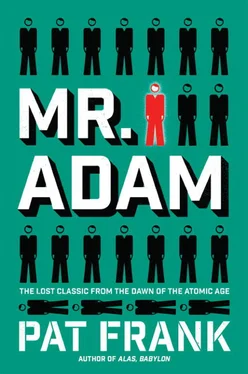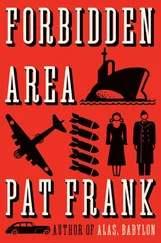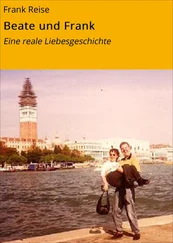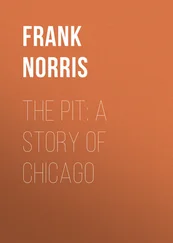“The machines? You mean, you knew that the machines gave you your opportunity?”
“No. Not exactly that. But when I saw the machines I hated them. They were so damn smug. There were a lot of big, pot-bellied machines with snouts and arms, and they all looked alive, and smug. They were exactly like the machines in Pflaum’s house, and I felt they had been patiently waiting for me. I hated them, and I wanted to put them out of business, and all of a sudden I knew that if I was out of the way the machines would die. That was when I walked into the range of the radiations. I think it was the Gamma rays first.”
“Homer,” I said, “it sounds perfectly correct and reasonable to me, but I am glad no psychiatrist is listening.”
“I’m glad you don’t think there’s something wrong with me,” Homer said. “There isn’t anything wrong with me, now. Why, I’m just like everyone else.” It was strange, the way he relished the phrase. It was as if he had happily and unexpectedly been elected to a college fraternity, after a semester of loneliness.
“Yes, Homer, you’re just like everyone else,” I agreed. “Just exactly.”
Mary Ellen came down the steps, carrying the Adam offspring. I reflected on what would have happened had Eleanor been a boy, and said something about it, and Homer said, “Thank goodness she was a girl, because if she had been a boy, he would have had to go through the same thing I had to go through when he grew up.”
Mary Ellen said she knew she should feel sorry about what had happened to Homer, but she didn’t at all, really. She knew this was selfish, but on the other hand she felt certain something would turn up. She asked what had happened to the two Mongolians, and I said that nobody knew. She said that on one of the nights when Mrs. Brundidge was over she and Homer would come to the city, and visit, and I said that was fine, and I was sure Marge would enjoy having them. She said she hoped the government and the press would leave them alone from now on, because it would be difficult enough getting back into their old routine, and I said that in a few weeks everything would quiet down.
Eleanor began to squall, and Mary Ellen said she was hungry, and took her back upstairs, and Homer said he hoped I wouldn’t write anything about what had really happened in the N.R.C. laboratories, because it would get him into trouble. I told him that somebody would get hold of the story, sooner or later, but that when they did nobody would believe it, and if I wrote it now nobody would believe it, so I wasn’t going to write it.
I called J. C. Pogey, and then I went home. If I expected Marge to be apprehensive about what I’d done to Dr. Pell I was mistaken. She was putting together a ham steak and pineapple slices, and whistling at her work. “Before you come in here,” she said, “you put that gun in the closet, and take out the clip, and be sure there’s no bullet in the chamber.”
“Aren’t you going to ask me whether I killed him?” I said.
“I know you didn’t.”
I realized I hadn’t told her where I was going. “Know I didn’t kill who?”
“Why, Dr. Pell, of course. Who else would you be wanting to kill? I called him right after you left his house. He said you were headstrong and not too bright, but ordinarily harmless.”
I told her about Homer. “That’s what I thought,” she said, “from the way Dr. Pell talked.”
After dinner we retired to Smith Field, and the radio began to bleat about the new catastrophe—but always with optimistic overtones. It fell upon the theme that Homer was not indispensable, and worried that for a time, and then it began to chew the story of the two Mongolians. In the space of a few hours the two Mongolians became supremely important to the American people.
The Secretary of State had been asked about the status of the two Mongolians, and he said he had the greatest confidence in the fair play of the Russian government, our loyal allies, and he was sure the U.S.S.R. would not hoard them. The Secretary of State suggested that hereafter any unsterilized males should be turned over to the United Nations. If I remember his words correctly, he said, “How can we expect the United Nations to become a strong and independent force for the benefit of all mankind unless it possesses access to the resources of all nations?” It was a brilliant thought, and I was surprised that he hadn’t thought of it before.
He pointed out what aid the United States had given Russia, during the war, and went all the way back to the Alaska purchase to recall our constant good relations with Russia. The very spirit of Communism, he pointed out, was devoted to the good of all peoples, and he reminded Russia that the two unsterilized Mongols were citizens of the world, as well as of the U.S.S.R.
There was a dispatch from Chungking hinting that the two Mongolians might not be Russian at all, but Chinese, and requesting that the case be put before the Security Council. London immediately announced it would vote along with China.
And then, just before midnight, a dispatch from Moscow said that the Russian government didn’t know a thing about unsterilized Mongolians. The story of the two Mongolians, Moscow said, was undoubtedly part of an anti-Communist plot.
An announcer talked about a laxative that was so soothing for those over thirty-five, and I said I thought it was horrible advertising psychology, and Marge asked why, and I said because it automatically eliminated everyone under thirty-five as a prospective customer. Marge said that wasn’t the reason I didn’t like it. The reason was because I was over thirty-five, and resented it whenever anyone reminded me of it. And I admitted that was another reason I didn’t like it. And Marge said she thought it was good advertising, now that Adam was finished and the two Mongolians were phoney, because eventually everybody would be over thirty-five.
I don’t think she liked the idea, because she was still awake, with her head couched in her arm, when I fell asleep.
I suppose everyone turned out his lights at the usual hour that night. Certainly there was no wailing in the streets.
With Adam ruined, the two Mongolians a myth, the N.R.C. baffled and helpless, and the N.R.P. on the verge of liquidation, the situation was black as a British communiqué the day before Dunkirk. Yet the customs and habits of man kept him revolving in his orbit as inexorably as planets are bound to the sun. The world would not die in agony and convulsions. It would simply expire of old age.
The most popular slogan of the day was “Take it easy,” and Life Begins at Forty again went to the top of the list of best sellers. The only people who were extremely sensitive to the passing of each childless day were women approaching an age where they would no longer be able to hear children. They formed associations, and demanded that Congress and the Administration do something, but there was nothing to do.
Everyone acquired a little bit of the philosophy of J.C. Pogey, and Pogey himself said mankind was behaving exactly as he had expected. “It is this way,” he explained. “If the threat of destruction couldn’t jolt us out of our rut—and that threat was apparent long before Mississippi—then the fact of destruction can’t be expected to change us much either.”
Everything rocked along as usual. The Miami Chamber of Commerce announced that it was planning its biggest season, and that next winter, for certain, Miami would not be overrun with gangsters and racketeers. The airlines started five-day excursions to Paris and Cairo. There was an abundance of nylon stockings, but it became unfashionable to wear them. The housing crisis miraculously passed. Everything was normal—except in my own home.
Читать дальше












